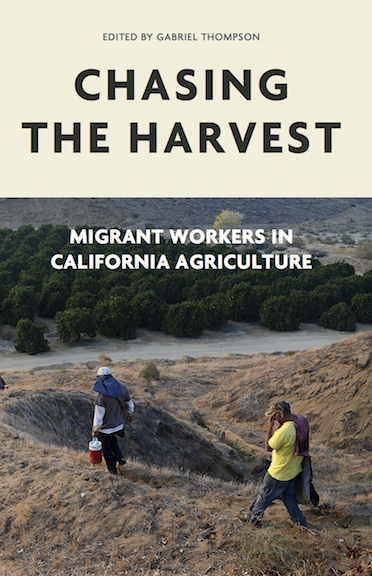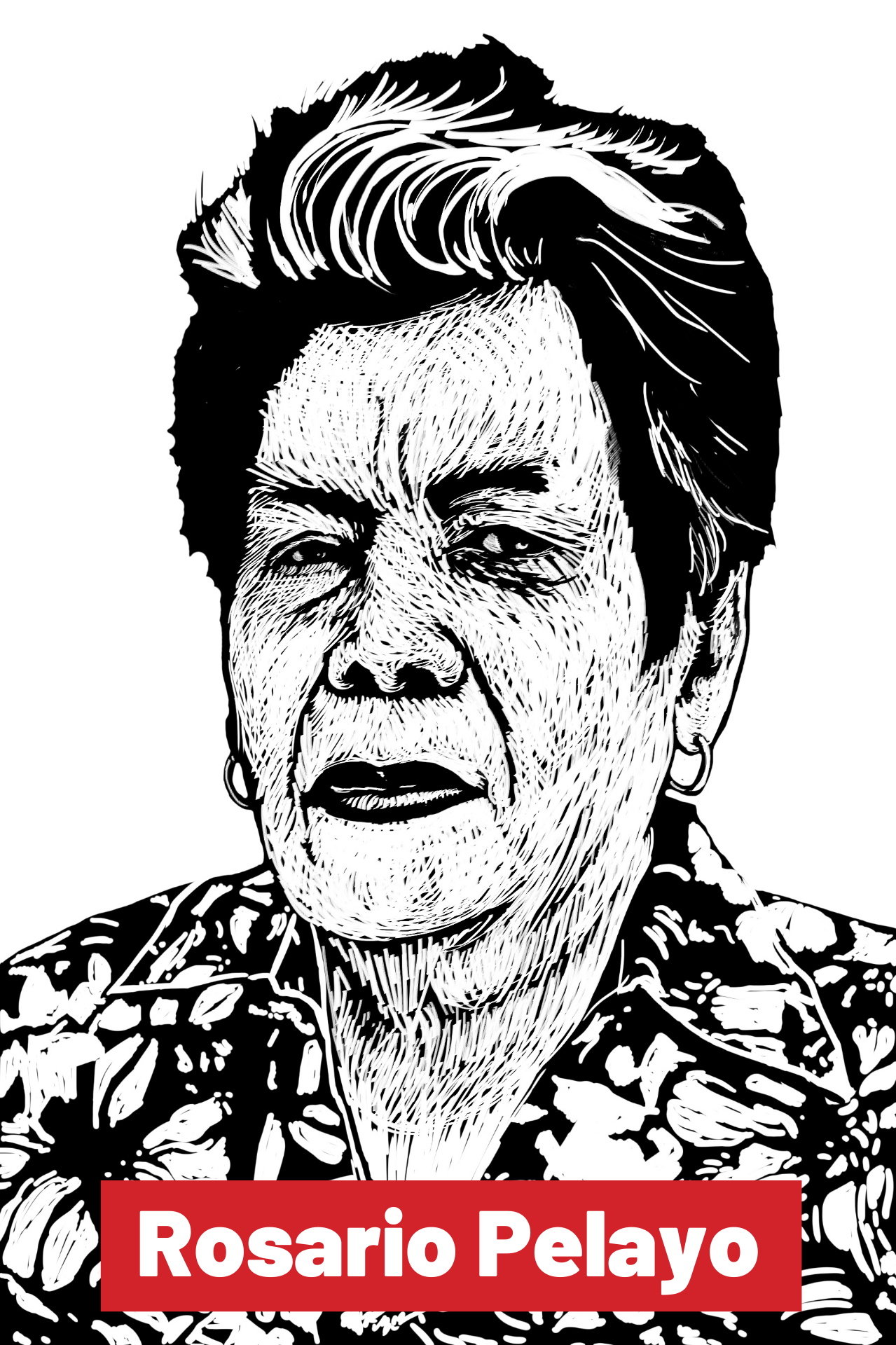
2019 marks 10 years for Voice of Witness as a nonprofit, and in celebration of this exciting milestone, we are resurfacing powerful stories from every oral history book in our series. Though time has passed since these stories were first published, many of the themes and issues they address are as relevant and important as ever.
The Grapes of Wrath brought national attention to the lives of California’s migrant farmworkers in the 1930s. César Chávez and the United Farm Workers’ grape and lettuce boycotts captured the imagination of the United States in the 1960s and 70s. Yet today, the stories of the more than 800,000 men, women, and children working in California’s fields—one third of the nation’s agricultural workforce—are rarely heard, despite the persistence of wage theft, dangerous working conditions, and uncertain futures.
Chasing the Harvest: Migrant Workers in California Agriculture aims to address this gap. Chasing the Harvest is a book of oral histories that makes more visible these farmworkers’ stories of hardship, but also of bravery, solidarity, and creativity in making a life in California’s fields and earning greater opportunity for future generations.
Rosario Pelayo’s Story
In 1970, after waging a five-year campaign that included a national boycott of grapes, the United Farm Workers signed contracts with California’s largest table-grape growers. When the contracts expired, in 1973, the companies signed new contracts with the International Brotherhood of Teamsters, a union with a long history of corruption and collusion with California growers. Thus began a new round of strikes and boycotts, which began in Coachella and spread to the San Joaquin Valley.

Rosario Pelayo moved to the United States with her husband and five children in 1971.
I first started working in 1971. I started in the grape fields in Coachella, for a company called Karahadian. It was rough, you know? Because we worked all day and it was very different than back in Mexico. You had to work for eight or nine hours under the sun without a break. There were farmers who didn’t provide any water for the workers. There were no bathrooms, and you had to go find a secluded spot for privacy. Later that year I also went to work in lettuce in Calexico. We traveled like that and worked for two years. When I started there was a lot of pressure building in the area, and the UFW began to organize and explain the ways we could have better working conditions. But first we had to ask the farmers to give us those rights, right?
I remember the first time that a representative of the union showed up in the grape fields in 1973. When all of us workers saw that the union people were on the road near the grape fields, carrying flags and signs, we went out. Not all of us came out, but most of us did. I grabbed a flag and started to yell at the other workers to leave the fields, because we were going on strike. From that day on, I’d wake up at 5 a.m. and go to the fields to picket and ask the workers not to break the strike.
The Teamsters really came after us in Coachella. We often talked with them about why they broke the strikes. They told us that they were working for the farmers and were getting paid to do that. The Teamsters treated the farmworkers as if they were slaves. The gorillas beat up a lot of people. They beat a priest up; they broke his nose.
One of my sisters had moved to California as well, and her family was part of the movement. While we were striking, my family, along with my sister’s family, lived close to the picket lines with my brother-in-law. At the time, my brother-in-law worked as an irrigator at the farm where we were striking, and the company he worked for gave houses to their employees. So my husband and I stayed there in that house with them, along with our six kids, who ranged from very young up to my sixteen-year-old daughter. And my sister’s family was there, too, so it was a full house.
One afternoon, after being at the picket lines, we came home to eat lunch. There was a knock at the door, and my brother-in-law went to answer. We all went out to see who it was. The kids, too— you know what kids are like. It was six men, and they immediately started cursing at us and yelling, saying the farmer wanted us out of the house. They were Teamsters. The men were armed—some had the shears used to cut asparagus, some had tire irons or chains, some carried bats.
The Teamsters threatened us, but they didn’t have time to beat us up because we called the union’s office, and the UFW sent people out right away to check on us. In fact, a lot of people who were on strike came out to the house, and the Teamsters left.
Later, the farmer even disconnected the water supply. A lawyer went to talk to them and they connected the water supply again and we stayed a bit longer.
I was angry. Not afraid. We didn’t show them that we were scared. But after pressure from the farmer, my family left to live in a house in Calexico. I stayed to continue with the strike, and then I went up to Delano to continue the grape strike there. And we were also working on a boycott. We would go around to the grocery stores and ask customers not to buy grapes. Some of the customers would ask us what we were up to, and we’d tell them that we were fighting for better wages, to be treated better at our jobs in the fields.
In Delano, only my oldest son Jorge stayed with me. He was eleven years old at the time. We kept each other company and he liked being there. Sometimes we had nowhere to go, so we stayed in the park—it’s the only park there is in Delano. We slept on benches, in our cars. A lot of strikers were sleeping in cars around the park. The union ordered food for us when they had money. And when they didn’t, we ate whatever we could.
Very early in the morning we’d continue with the strike. The police followed us every day: they knew which cars were ours. We talked to workers, told them to leave the fields, to stop working, that they were breaking the strike and we weren’t going to be able to get the benefits that the union was offering to give us. And that’s what we did all day long. We stayed there until workers left the fields. We were close to the highway and we weren’t obstructing the fields, because the police would come to get us if they saw we were directly interfering with the work or on the farmer’s property. But I did cross into the fields, many times. And that’s when the police would come and take me to jail.
Read Rosario’s full story in Chasing the Harvest: Migrant Workers in California Agriculture.




